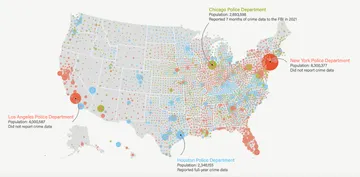The Place: All federal and state courts
The Rule: Jury members cannot consult outside texts or resources – even dictionaries – during deliberation.
The Reason: Even if they don’t know the meaning of a word, juries must confine their knowledge of a case to what’s presented in court. While dictionaries might seem like a harmless text, most courts have ruled that consulting one is in fact misconduct because it could color a jury’s decision. Take the word “malice.” Merriam-Webster defines it as “a desire to cause harm to another person,” while jury instructions have defined it as “that condition of mind that prompts a person to intentionally inflict damage without just cause, excuse, or justification.”
The Repercussions: If a jury member does use a dictionary, it doesn’t necessarily mean the case will be retried; attorneys have to prove that the definition inappropriately swayed the decision. There have been several cases in which looking up everything from “assault” to “intent” to “wanton” wasn’t enough to warrant overturning a jury’s ruling. But judges in other cases have found that a jury’s use of a dictionary or encyclopedia was enough reason to do it all over again. In 2007, courts overturned a Kentucky man’s rape conviction when it was discovered his jury had looked up the definition of “rape” in the dictionary. Webster and Oxford don’t require “penetration” for something to be considered rape. Kentucky law does.
